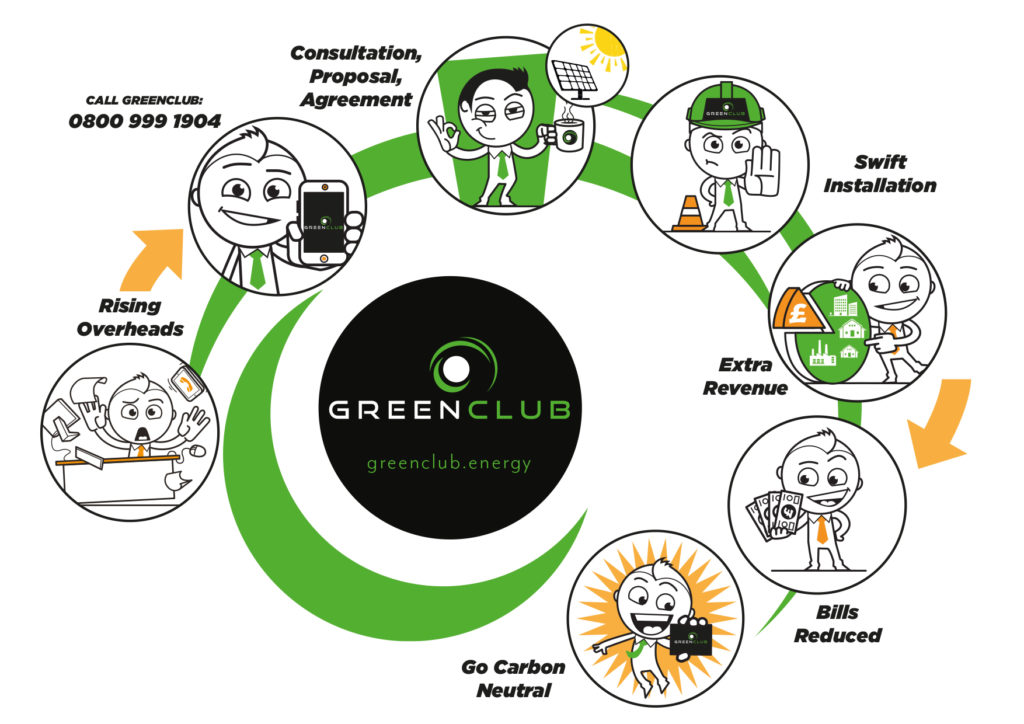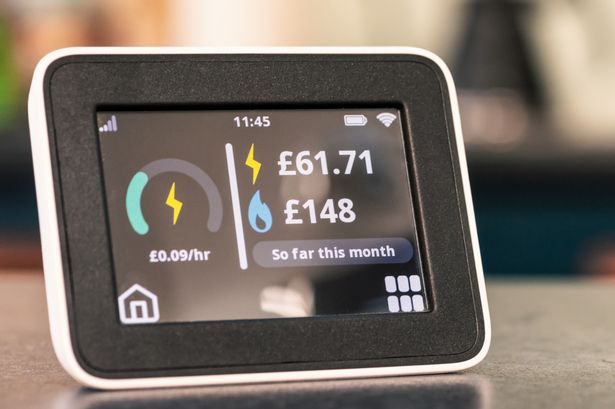GBN talks to Mike Gray, UK business manager of sustainability consultants, GreenClub, about its mission to help golf clubs combat the dramatic rise in fuel costs, reduce their energy bills and their environmental impact by switching to renewable sources of energy to help achieve the ultimate ambition of ‘Net Zero’
Can you provide a brief background into the who, how and when of GreenClub being set up, what its ambitions are, and what is the business model?
GreenClub was set up in 2020 by Paul Cuddy and Karl Gallagher, both of whom have a long association with golf and felt after the Open at Royal Portrush that there was a great opportunity to help golf transition to become more sustainable and environmentally responsible.
Legislation had changed to allow businesses which generated their own renewable energy not only to become independent of expensive mains supply, but also to sell back any surplus energy generated to their local communities. GreenClub was launched to help venues to take advantage of this opportunity and, at the same time, do the right thing for the planet by helping reduce greenhouse gas emissions.
As GreenClub engaged with clubs, it became obvious that the industry needed a lot more help, and as a result, the company broadened its services to encapsulate the entire business and to help develop sustainability roadmaps specifically for individual venues with the goal of achieving Net Zero operations.
The business model is pretty simple. We offer three levels of engagement that includes survey and audits that will allow clubs to make informed decisions about how best to reduce overheads, improve sustainability and enhance financial and environmental performance. GreenClub then works with the club to implement their plans.
How many clubs have signed up to GreenClub to date, and what is your target over the next five years?
To date we have nine clubs that we are working with and more than 20 others in various stages of negotiation. Our target is to engage up to 1,000 clubs over the next five years.
How can clubs improve their approach to sustainability, both in the short and long term?
The subject is well promoted across the industry, but there is a challenge to understand how to begin the journey. Golf clubs are often sitting on land and roof space that could be easily repurposed. I guarantee there will be low hanging fruit on and off the course that with a little bit of direction could make huge differences to the club’s sustainability.
For example, adopting policies such as the paperless office, digital scorecards or recycling solutions for single-use plastics and water management are just a few to consider. Often, it’s policy changes rather than investment that’s needed to get everyone on board, changing the business culture. That said, many clubhouses in the UK are underinvested and plant and infrastructure are often highly inefficient. With energy prices the way they are, a cohesive long-term investment plan is critical to future-proofing the club.

Given the current spiralling costs of gas and electricity, there can’t be much of a hard sell required to convince clubs of the benefits of switching to renewable energy, but what reasons do clubs give that don’t think they’re ready or able to make the switch?
Helping clubs to have a clear understanding of their own situation and what opportunities there are to mitigate costs is both the biggest challenge and greatest opportunity. Often preconceived ideas that making changes is going to be too expensive means that sustainability gets put on the ‘too difficult’ or ‘not now’ piles. That is where GreenClub is positioned to help, so that the recommended solutions become part of a club’s longer-term business planning. Big or small, every club has the ability to improve their efficiency, which has never been more important.
How does the process work once a club has signed up to GreenClub and how will they benefit from working with you?
Our primary goal is to help clubs to understand what they can do to reduce their overheads, become more sustainable through long-term efficiency, enhancing both financial and environmental performance.
We have two core products – GC Lite and GC Premium. At £1,000, GC Lite is a cost-effective way for a club to take its first steps on the journey and delivers a helicopter view of the business and what generation opportunities could be considered at the club. The intent is to provide information that will help owners and management to make considered decisions that will future proof their club.
GC Premium is a comprehensive and highly detailed on-site survey and audit from top to toe. Accessing the efficiency of infrastructure and plant, new technology and systems that would enhance the club’s performance, opportunities to generate on-site renewable energy, the effectiveness of current operating policies and communications.
There are typically 14 key components of the operation that are scrutinised from which recommendations will form the basis of the club’s ‘Sustainability Roadmap’. Subject to the scale of the business, GC Premium starts at £5,000. Clubs that have already completed GC Lite will have their fee credited when they move to GC Premium.
We also provide a bespoke service for clubs that may be considering specific, individual large-scale projects.
You are recognised by GEO as a sustainability solutions and innovation provider. What synergies are there with GEO’s work and what other potential partnerships are you eyeing up?
We are delighted to have GEO’s recognition as perhaps the world’s leading environmental organisation in golf, they do a fantastic job in helping golf’s transition to becoming a truly environmentally responsible sport.
Where we differ is that, while the GEO largely focuses on what needs to be achieved, GreenClub is focused on the HOW, providing site-specific detailed information and recommendations aligned to initiatives that will enhance a club’s overall performance that will futureproof the business to ensure its long-term sustainability.
We’ve formed relationship with the Scottish Golf Club Managers Association and the Lancashire Golf Union that helps us to better connect with club management. Lancashire recognised the importance and have agreed to subsidise 50 per cent of the cost of GC Lite for clubs in the county that sign up before the end of April. We’re hoping to develop similar relationships with other governing organisations.

With bills rising on an almost weekly basis, are there any simple day-to-say things that clubs can do that will help to reduce their energy bills and their carbon footprint?
There are some very easy things that everyone can to do to boost their sustainability credentials and GreenClub has 10 simple tips to promote a greener future and help reduce your bills:
- Switch off the lights and switch your bulbs to LED.
- Switch off “standby” appliances. When replacing old appliances, look for more energy efficient ones.
- Check that the fridge and freezer thermostats are at their most efficient setting and defrost regularly to maintain efficiency.
- Turn down the heating – even just one degree will make a difference.
- Be smart on water usage. Fit regulators on taps, showers and toilets so water can’t be left running.
- Check your building insulation and reduce draughts by closing doors and curtains.
- Use a smart meter to monitor energy usage.
- Encourage and incentivise your customers to car share or cycle to your venue.
- Source the produce you require for your venue locally.
- Cut down on single-use plastics and use wooden or recycled golf tees.
What plans do you have to roll out GreenClub internationally?
Of course, this not only a UK issue so we are working on a product that we believe will be attractive to venues internationally which should be launched in the coming weeks.
Given the vast resources that are required to build, sustain and maintain a golf course, and a golf club, how realistic is it that golf can become a carbon neutral sport?
I’m not sure that golf or any sport for that matter can become truly carbon neutral. The ambition of achieving a Net Zero operation is more realistic, getting club’s individual carbon footprint down to a level where it could be offset. New builds, extensions and renovations must incorporate efficient systems in their design, and, while retrofitting can be more challenging, efficient technologies should a priority.
There is no question in these times that there’s both a need and opportunity for golf to reduce the sports carbon footprint and, by consequence, to enhance its sustainability ensuring golf courses are available for generations to come to enjoy the game we love. The true cost of inaction will likely be that the future of many golf clubs will be at high risk.
For more information, visit www.greenclub.energy, email info@greenclub.energy or call 0800 999 1904. You can also watch a short corporate video here.


